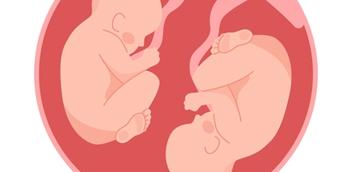
Tumor Stage Affects Risk of Developing Contralateral Breast Cancer
Women with primary breast cancer diagnosed at an advanced stage are at increased risk for the development of contralateral breast cancer (CBC), according to the results of a population-based study conducted in Sweden.
Women with primary breast cancer diagnosed at an advanced stage are at increased risk for the development of contralateral breast cancer (CBC), according to the results of a population-based study conducted in Sweden.1
Researchers investigated risk factors for and the prognosis of metachronous CBC by analyzing survival data from 42,670 women with breast cancer. A 6-month interval was used to distinguish between cases of metachronous CBC and synchronous CBC. A total of 37,393 cases met inclusion criteria and were eligible for analysis; the primary reason for ineligibility was incomplete follow-up data. Survival data was assessed for women with CBC and then compared with that for women with unilateral breast cancer (UBC).
Overall, median survival time was 6.7 years, and the incidence of CBC was 3.5 cases per 1000 person-years. Compared with women with node-negative breast cancer, women with primary breast cancer that involved 10 or more lymph nodes had nearly double the risk of CBC (adjusted hazard ratio, 1.8; confidence interval, 95%). Women younger than 50 years when the primary cancer was diagnosed had the highest incidence of CBC. Larger tumor size and lobular histology of the initial cancer also elevated the risk of CBC. When the cancer extended to the chest wall or the skin (T4), the risk of CBC was more than doubled.
Women with CBC also had a poorer prognosis than women with UBC. Compared with the risk of death for UBC, when the diagnosis of CBC occurred within 5 years of the primary breast cancer diagnosis, death was 2.3 times more likely. This increased risk of death decreased gradually over time (adjusted hazard ratio, 2.1 for CBC > 5 years) but remained higher than the risk of death in the UBC group until 13 years after the initial diagnosis. An elevated risk of death among women with CBC also was associated with increasing size of the contralateral tumor, node-positive CBC, high tumor grade, lobular histology, and hormone receptor negativity. Tumor grade and hormone receptor status were not associated with increased risk of CBC, however.
Interestingly, endocrine therapy was associated with a reduction in risk of CBC. Endocrine therapy also seemed to improve prognosis. The risk of death was reduced by half in women who received a diagnosis of CBC within 5 years of their initial breast cancer diagnosis.
Pertinent Points:
- Women with advanced-stage breast cancer at initial diagnosis are at increased risk for contralateral breast cancer.
- Surveillance and treatment plans of women with less than 5 years between an initial diagnosis of breast cancer and a diagnosis of contralateral breast cancer may require modification in light of the poor prognosis associated with such cases.
References:
1. Vichapat V, Garmo H, Holmqvist M, et al. Tumor stage affects risk and prognosis of contralateral breast cancer: results from a large Swedish-population-based study. J Clin Oncol. 2012;30:3478-3485.
Newsletter
Get the latest clinical updates, case studies, and expert commentary in obstetric and gynecologic care. Sign up now to stay informed.









